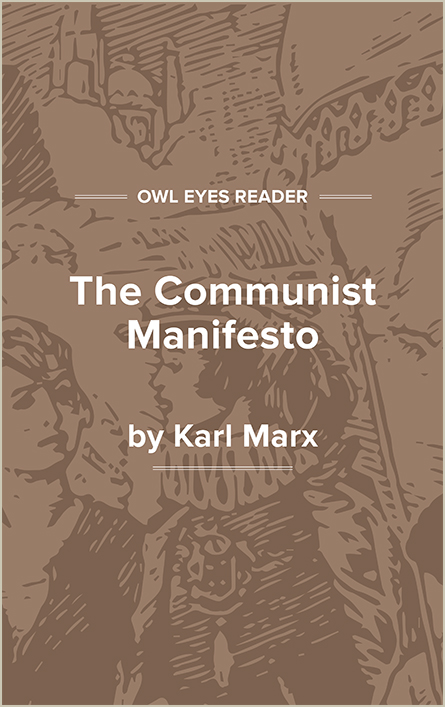Study Guide
Karl Marx Biography
Article abstract: Marx’s ideas concerning modes of economic distribution, social class, and the developmental patterns of history have profoundly influenced theories in philosophical and economic thought and have helped shape the political structure of the modern world.
Early Life
Karl Marx was born into a Jewish family in the city of Trier in the southern Rhineland area. By the time the Rhineland was rejoined, after the Napoleonic Wars, to Protestant Prussia in 1814, his father, a public lawyer, had converted to Christianity. In 1830, the young Marx entered the Trier secondary school and pursued the traditional humanities curriculum. In the fall of 1835, he entered the University of Bonn as a law student, but he left the following year to enroll at the University of Berlin. His studies were concentrated on law, history, and the works of the then-leading philosophers Johann Gottlieb Fichte and Georg Wilhelm Friedrich Hegel.
Marx was graduated in 1841 after writing his doctoral dissertation, and he returned to Bonn, where he became involved with his friend Bruno Bauer in left-wing politics and in the study of the materialist philosophy of Ludwig Feuerbach. In April, 1842, he began writing radical articles for the Rheinische Zeitung (Rhenish gazette), and he assumed its editorship in Cologne that October. He married in June, 1843, and moved to Paris that October.
In August, 1844, Marx met Friedrich Engels in Paris, and the two began a productive collaboration. Marx’s articles had angered the Prussian government, and in February, 1845, he moved to Brussels. In 1848, the year of revolutions in many European countries, Marx was ordered to leave Brussels; he returned to Paris and then to Cologne. He was again compelled to leave in 1849 and went to London, where he would remain for the rest of his life.
Life’s Work
Marx’s lifelong critique of capitalist economy began in part as an analysis of the then-dominant Hegelian system of philosophical idealism. Influenced to a degree by Ludwig Feuerbach’s materialism, Marx rejected Hegel’s metaphysical vision of a Weltgeist, or Absolute Spirit. It was not metaphysical Spirit that governed history but rather material existence that determined consciousness. The ways in which an individual was compelled to seek physical necessities such as food, shelter, and clothing within a society profoundly influenced the manner in which a person viewed himself and others. As Hegel (and others) suggested, the course of history was indeed a dialectical process of conflict and resolution, but for Marx this development was determined to a great extent by economic realities. Whereas Hegel saw dialectical process (thesis/antithesis/synthesis) as one of ideas, for Marx it was one of class struggle. Hence, Marx’s position is called dialectical materialism. He stood in staunch opposition to the prior philosophical tradition of German idealism and thinkers such as Immanuel Kant, Fichte, and Hegel. German philosophy, he believed, was mired in insubstantial theoretical speculation when concrete and practical thought about the relationship between reality—especially economic and political realities—and consciousness was needed. In general, Marx was a synthetic thinker, and his views represent a mixture of German materialist philosophy such as that of Feuerbach; the French social doctrines of Charles Fourier, Comte de Saint-Simon, and Pierre-Joseph Proudhon; and British theories of political economy such as those of Adam Smith and David Ricardo.
Marx’s philosophical position of a dialectical materialism suggests a comprehensive view of social organization—which is, broadly speaking, a dimension of human consciousness—in all its manifestations. The determinant of all societal forms is its economic base (Basis), that is, the means of production and the distribution of its produced wealth. All aspects of human social interaction, what Marx called the superstructure (Überbau ), are influenced and shaped by...
(The entire page is 2,181 words.)
Owl Eyes subscribers get unlimited access to our expert annotations, analyses, and study guides on your favorite texts. Master the classics for less than $5/month!

